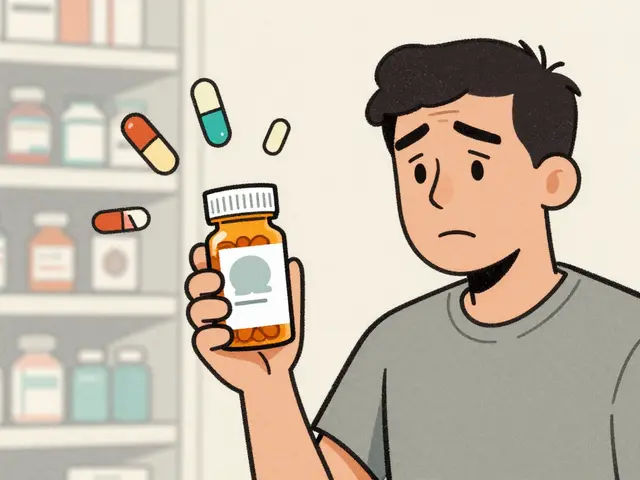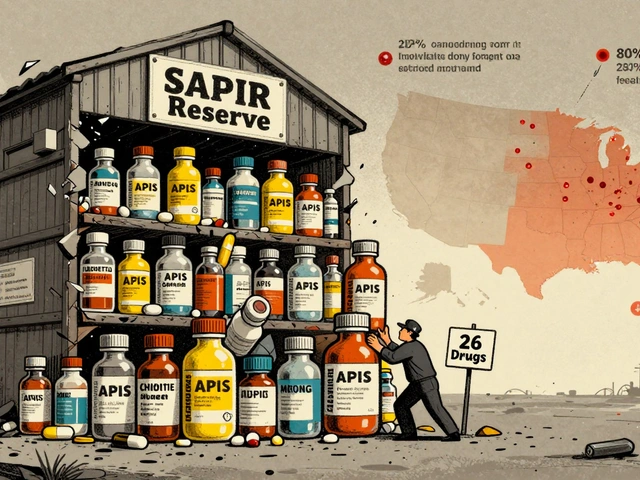risk — Practical guides on drug safety, recalls and buying meds online
Worried about a drug recall, side effects, or buying medicine online? This tag collects straightforward, practical articles that focus on real risks and how to avoid them. From Zantac recalls to buying azithromycin or growth hormone safely, the posts here help you spot problems and take action without the guesswork.
Common risks you’ll see in these articles
Some risks come from the medicine itself — like isotretinoin (Accutane), which can cause birth defects and needs strict pregnancy prevention rules. Others come from supply chains and counterfeit drugs, as with online pharmacies that sell antibiotics or hormones without a valid prescription. You’ll also find pieces about side effects (torsemide, latanoprost), drug interactions (acetyl-L-carnitine and thyroid meds), and legal/regulatory issues (Zantac’s NDMA contamination or rapid USFDA approvals).
Articles tagged “risk” don’t just list problems. They explain how serious each issue is, who’s most at risk, and clear steps you can take right away. For example: when an antibiotic is recalled or a pharmacy appears dubious, the guide tells you what to check and what to stop using immediately.
Quick safety checklist — what to do now
Before you buy or keep taking any medicine, run this checklist: 1) Do you have a valid prescription for the drug? Controlled meds and many antibiotics require one. 2) Is the seller licensed and contactable? Legit pharmacies show registration, phone, and physical address. 3) Check packaging: lot number, expiry date, and intact seals. 4) Compare active ingredient and dosage to what your doctor prescribed. Counterfeits often have wrong strength. 5) Read known side effects and interaction warnings—stop and call your prescriber if you get worrying symptoms like severe rash, breathing trouble, chest pain, or sudden mood swings.
If you’re switching drugs (like moving off Glipizide or finding alternatives to doxycycline), use the practical checklists in our articles: monitor blood sugar, note side effects, and schedule follow-up labs when recommended. For high-risk meds such as isotretinoin or hormones, follow the recommended monitoring schedules exactly.
Buying online? Look for HTTPS, clear prescription requirements, and third-party accreditation if available. Avoid sites that pressure you to skip your doctor or promise miracle cures. If price looks too good to be true, it probably is—cheap pills can mean fake or expired products.
Finally, keep a simple medication list (drug, dose, reason) and share it with every clinician you see. If you suspect harm from a drug or a counterfeit product, report it to your local health authority or regulator. That helps protect you and others.
Browse the linked articles in this tag for specific drugs, pharmacy reviews, and step-by-step advice on what to do next. Each piece aims to help you make safer choices without the jargon.

- Jun 18, 2023
- Posted by Cillian Osterfield
Azathioprine and the Risk of Raynaud's Phenomenon: A Comprehensive Review
In a recent comprehensive review, I came across some intriguing findings on the relationship between Azathioprine and the risk of Raynaud's Phenomenon. For those who may not know, Azathioprine is an immunosuppressive medication often used in treating autoimmune diseases, while Raynaud's Phenomenon is a condition that causes the blood vessels in extremities to constrict when exposed to cold or stress. According to the review, there seems to be an association between the use of Azathioprine and an increased risk of developing Raynaud's Phenomenon. This is important information for both patients and healthcare providers to consider when weighing the benefits and risks of using Azathioprine. Further research is needed to better understand the underlying mechanisms and potential ways to mitigate this risk.
Categories
- Health and Wellness (72)
- Medications (71)
- Health and Medicine (28)
- Pharmacy Services (12)
- Mental Health (9)
- Health and Career (2)
- Medical Research (2)
- Business and Finance (2)
- Health Information (2)
©2026 heydoctor.su. All rights reserved





